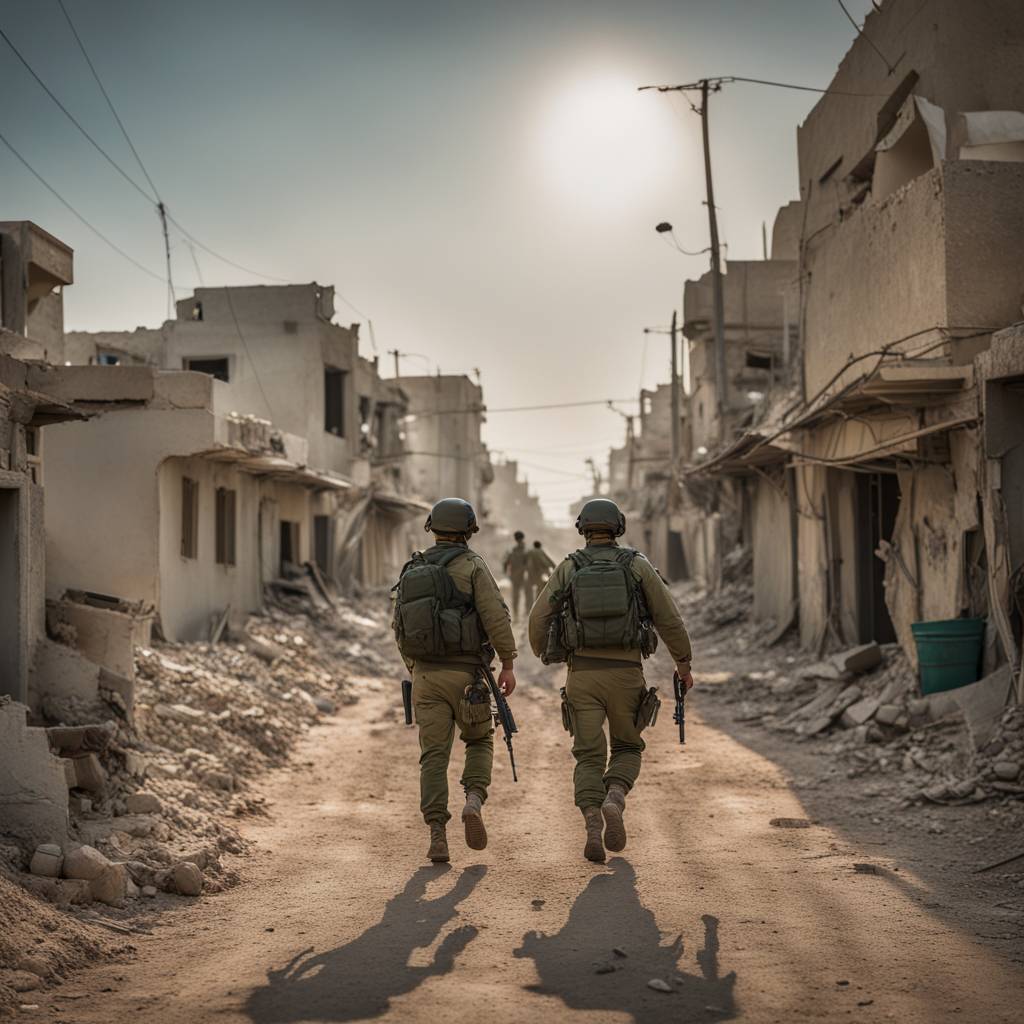The Israeli military announced the withdrawal of a division of ground troops from the southern Gaza Strip, marking a significant reduction in the number of soldiers on the ground in Gaza over the past few months. The last group of soldiers in the southern city of Khan Younis has left Gaza to rest and prepare for future operations, leaving no Israeli troops actively maneuvering in southern Gaza. However, the army remains in other parts of Gaza to preserve its ability to conduct intelligence-based operations. The decision to withdraw troops raised questions about Israel’s plans and intentions in the ongoing conflict with Hamas.
While the withdrawal of troops from Khan Younis has occurred, there is uncertainty and skepticism among residents of the area. Many are hesitant to return to their homes, fearing that the army may return at any time. Even with the withdrawal, Israeli officials remained on high alert as tensions escalated with Iran following a strike in Syria that killed seven senior Iranian military officers. Prime Minister Benjamin Netanyahu stated that Israel was prepared defensively and offensively for any potential attacks from Iran or its allies.
Despite the troop withdrawal, Israel’s defense minister emphasized that the military was preparing for follow-up missions, including potential operations in Rafah. The Israeli government expressed readiness to respond to any attempts by Iran to retaliate for the recent strike. Meanwhile, international mediators, including representatives from the United States, Egypt, and Qatar, were meeting in Cairo with delegations from Israel and Hamas to negotiate a temporary cease-fire in Gaza, as well as the release of hostages taken by Hamas during an attack on Israel.
The talks in Cairo aimed to reach an agreement on a temporary cease-fire and the release of hostages taken by Hamas in October. The outlines of a potential agreement have been clear for months, but details have proved divisive, with Hamas calling for a total Israeli withdrawal from Gaza. However, Israeli officials vehemently reject this proposal. The ongoing war has sparked anger and protests in Israel, with demands for the government to take action to bring the hostages home.
With the conflict now in its seventh month, the war appears to have reached an impasse, with no clear resolution in sight. Israel’s reluctance to agree to a cease-fire that allows Hamas to regroup in parts of Gaza, and Hamas’ concerns about ensuring its survival, have made negotiations for a truce challenging. The power vacuum created by the conflict has led to civil disorder, hindering the distribution of aid to Palestinians in need.
Many displaced Palestinians like Mohammed Radi expressed frustration and exhaustion after months of living in tents. The ongoing conflict has created a humanitarian crisis, with warnings of a looming famine. As talks for a cease-fire continue and tensions remain high, the situation in Gaza remains precarious, with no immediate solution in sight.


